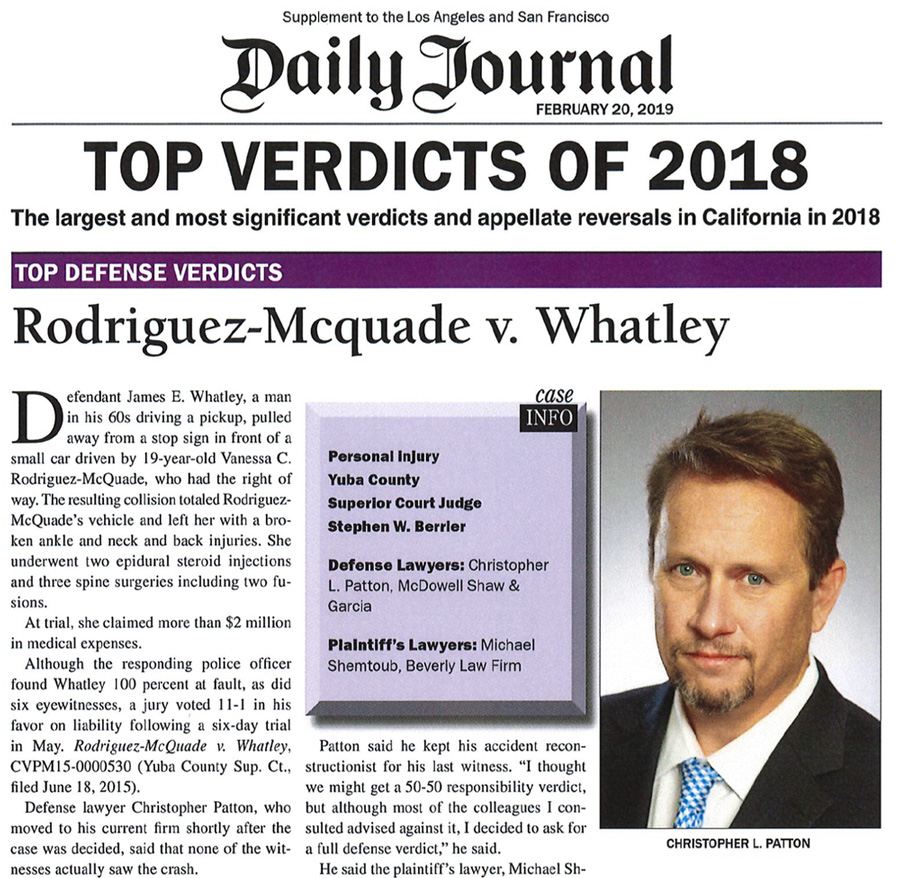News & Events
Chris Patton presented at the Northern California Fraud Investigators/Anti-Fraud Alliance Conference in Monterey California in March 2019 on the Pebley decision.
The presentation covered in part, how Plaintiffs have historically attempted to claim the full amount of their medical bills as damages. However, most medical bills from auto accident claims were discounted based on contractual billing agreements between the medical providers and health insurance carriers or Medicare. The courts have ruled that plaintiffs cannot recover more than the amount the medical provider accepted as payment (the Hanif decision). This paid amount is often pennies on the dollar to the billed amount.
Since the Hanif decision limited the amount of medical bills a plaintiff can claim as damages, plaintiffs have been increasingly treating outside their health plans, or failing to give medical providers their health insurance so they can claim the inflated gross bills as part of their damages.
The California Supreme Court and the various Courts of Appeals have made numerous rulings over the last two decades affecting how these claimed gross “damages” can be presented to a jury, and more importantly, the scope and latitude the defense may use in challenging the gross (unpaid) bills.
In 2018 the Pebley decision found that a plaintiff who has insurance, yet choses to treat “outside” their plan, shall be treated as “uninsured” for purposes of trial. As one might guess, the possibilities of abuse and outright fraud have surfaced with this new case decision. Plaintiff attorneys are now even more likely to direct their clients to facilities who will inflate charges, thus increasing over all medical bills and subsequently increasing the cost of the claim.
The Presentation addressed “Recoverable” medical liens including a history of the Hanif decision and the subsequent cases concluding with the case of Pebley v. Santa Clara Organics. The discussion also included strategies for the defense in addressing the Pebley decision and contesting unreasonable medical liens through the discovery process up to trial.

